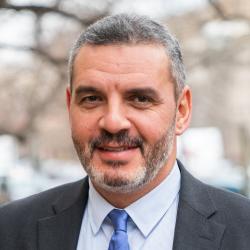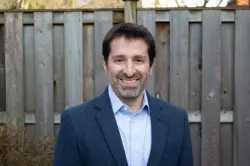Fellows Natan Sachs and Khaled Elgindy from the Center for Middle East Policy at Brookings debate the challenges facing the Israeli-Palestinian peace process.
“In the long term, [Hamas] is not where peace lies… What doomed the disengagement in Gaza was the rise of Hamas and the continuation of the war from it…. This reality, where war continues from a territory that is evacuated is perhaps the biggest [factor], except for the second intifada,… that has made Israelis skeptical of peace,” explains Natan.
“The other two trends on the ground are deepening Israeli occupation…You would expect if you are moving towards a two state solution…that there would be movement towards disengaging from that reality rather than deepening it. But it is in fact deepening. There are more settlers, more construction. And that is a source of anger for Palestinians who see more and more of their land being swallowed up… and their hopes for an independent state sort of vanishing before their eyes,” says Khaled in this podcast.
See also: Debating Israeli-Palestinian futures – a Markaz blog series
Also in this podcast: “Coffee Break” with Molly Reynolds. (“Coffee Break” is a new segment where we ask scholars at Brookings six questions to get to know them and their work more personally.)
Show Notes:
- Palestinian political crisis deepens with collapse of unity government
- The end of the peace process: What comes next?
- Abbas’ UN speech: What it means and what it doesn’t
- The new politics of religion and gender in Israel
- Israel and the United States: A dialogue of the deaf
- Dilemmas of the Israeli-Palestinian impasse
Subscribe to the Brookings Cafeteria on iTunes, listen on Stitcher, and send feedback email to [email protected].
The Brookings Institution is committed to quality, independence, and impact.
We are supported by a diverse array of funders. In line with our values and policies, each Brookings publication represents the sole views of its author(s).








Commentary
PodcastWill we ever have peace? A discussion on the Israeli-Palestinian conflict
October 16, 2015
Listen on
Brookings Cafeteria Podcast